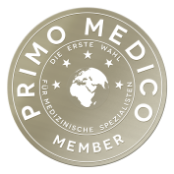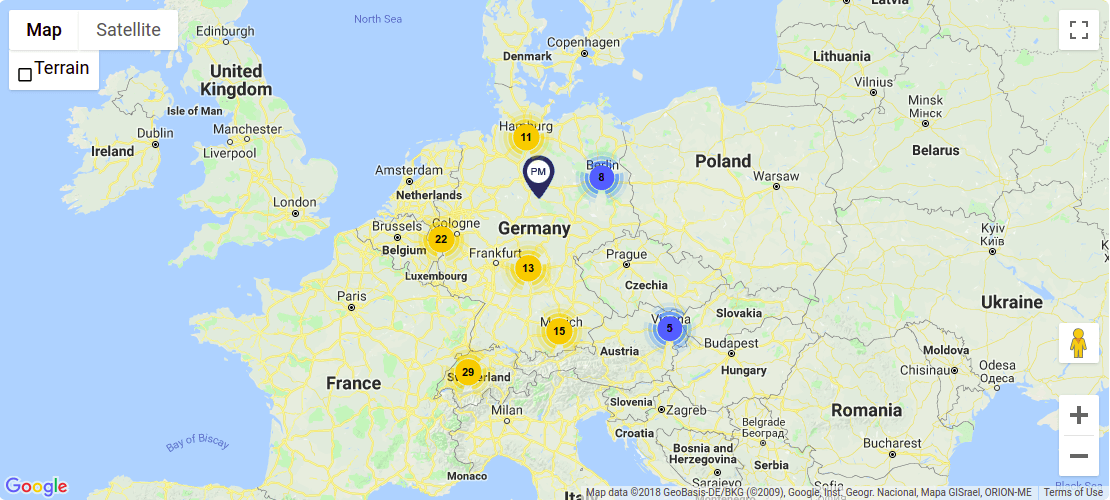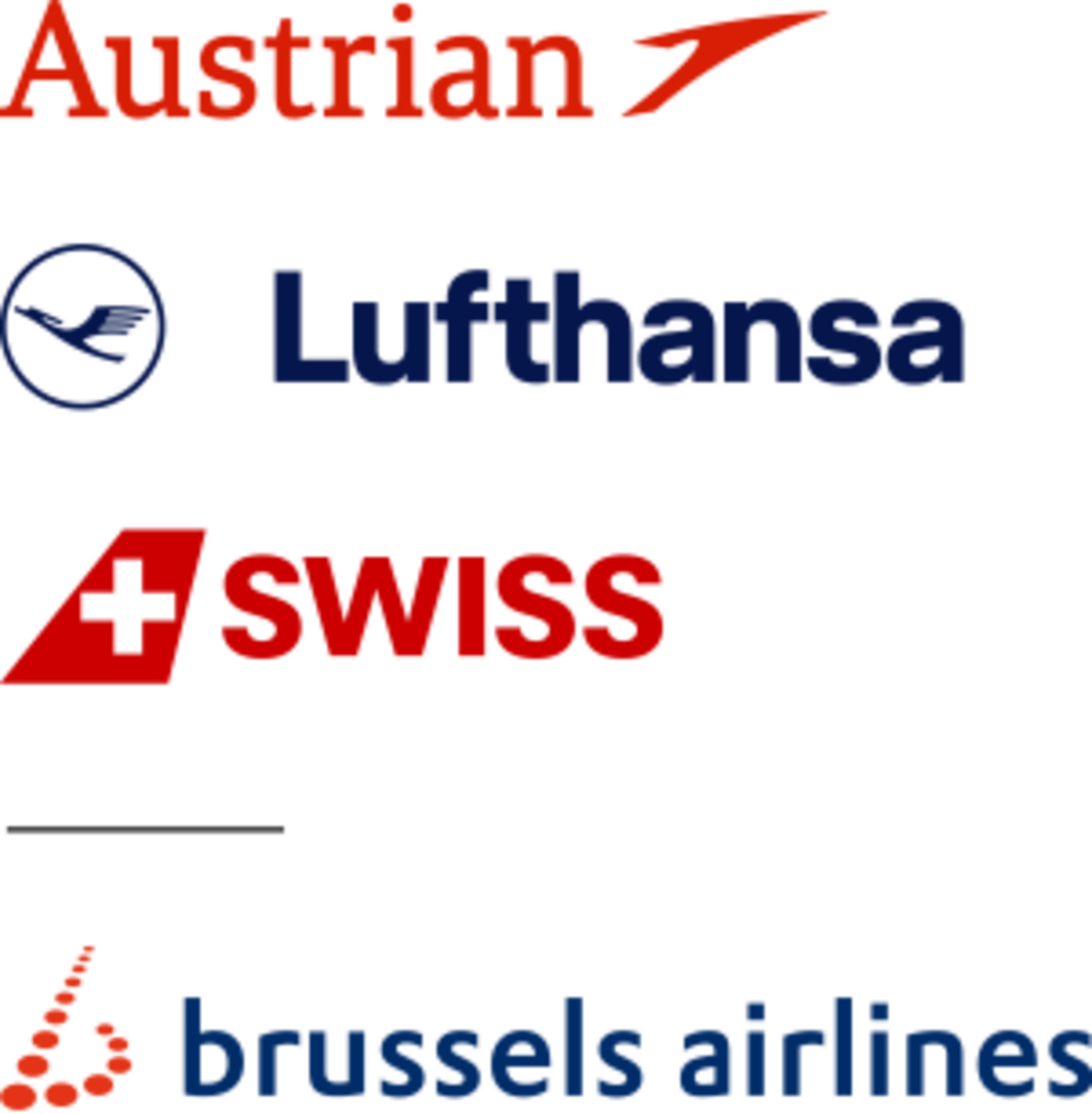Burghausen Cancer Therapy (Bavaria) – Prof. Dr Karl R. Aigner
Treatment focus
- Regional chemotherapy (RCT)
- Immunotherapy
- Oncological surgery
- Electrochemotherapy
- Hyperthermia
- Pain management
Contact
Medias Klinikum
Krankenhausstraße 3a, D-84489 Burghausen
P: +49 8677 679 3011 F: +49 8677 9160 120
Consultation Hours:
By appointment

Medical Range
Range of Diagnostic Services
- Clinical examinations
- Clinical chemistry laboratory with hematology laboratory
- Resting ECG
- Blood pressure measurements
- Blood gas analyses
- Sonography of the upper abdominal organs (abdominal sonography) and the chest
- Endoscopy examinations such as gastroscopy and colonoscopy
- X-ray examinations
- Interventional radiology
- Molecular diagnostics
Range of Therapeutic Services
Tumor Treatment for:
- Pancreatic cancer
- Breast Cancer
- Ovarian cancer
- Bile duct cancer
- Cervical cancer
- Head and neck cancer
- Gastric cancer
- Osteosarcoma
- Pleural mesothelioma
- Esophageal cancer
More Information
Card
Prof Dr Karl R. Aigner is a specialist in oncology and medical director and head physician at Medias Klinikum in Burghausen.
The oncological competence and service center Medias Klinikum, with more than 40 years of experience, specializes mainly in regional chemotherapy and primarily cares for patients whose treatment options are exhausted to a large extent. Professor Aigner's experienced team plans and implements the various oncological and concomitant therapies. The focus is on the patient's quality of life.
Specialist in Regional Chemotherapy: Innovative and Gentle Cancer Therapy
Regional chemotherapy appears to be a promising and state-of-the-art therapeutic procedure for treating various cancers. Prof Dr Aigner is one of the pioneers of this new therapy and has been researching the treatment method for more than forty years, so his habilitation is also dedicated to the techniques of regional chemotherapy. The experienced physician has released more than two hundred professional publications. He regularly travels for lectures and guest surgeries but also for international training of oncological surgeons.
The concept of the promising method involves applying significantly higher concentrations of the chemotherapeutic agent used than would be realizable with conventional chemotherapy. The drug is delivered via the artery supplying the tumor, and the tissue is flooded with the substance. At the same time, the area is separated from the bloodstream, which is why the highly concentrated chemotherapeutic agent reaches only the tumor area.
Access to the vessel can be achieved via vascular catheters, a port device, and isolated perfusion systems. The isolated perfusion technique is made possible using a stop-flow infusion developed by Dr Aigner, which allows the flow rate to be determined manually.
After flushing the tumor with the drug, the blood is purified by chemofiltration to measure significantly reduced systemic cytostatic levels when the area is reconnected to the bloodstream. Consequently, the side effect profile is reduced considerably, making the treatment more tolerable for patients.
Ten- to even eighty-fold higher concentrations can be achieved this way, ensuring a significantly more intensive tumor response. This is particularly useful for tumors that generally respond only to very high concentrations and are, therefore, limited in regular chemotherapy by the toxicity of the substance used. Severe side effects frequently accompany systemic chemotherapy, so many patients have to discontinue treatment due to sometimes accompanying severe symptoms.
Regional chemotherapy can be used primarily for solid tumors, including head and neck tumors, ovarian cancer and breast cancer, liver carcinomas, but also tumors of the bladder, prostate, and pancreas.
Good blood supply to the tumor is an essential prerequisite for treatment. The success can be reduced by pretreatments such as radiotherapy and previous surgeries with possibly disturbing scarring.
The goal of treatment is primarily reducing the tumor mass, which simplifies surgical removal and allows the malignant tissue to be removed with cancer-free margins. Complete remissions have also been recorded in some cases.
Many cancer patients who are already considered to have exhausted all treatment options in the classical sense can find the chance for a further therapeutic approach with the innovative treatment at the Medias Klinikum in Burghausen. Particular importance is attached to improving the quality of life and prolonging the life of seriously ill patients.
Dr Aigner's experienced team provides patients with comprehensive information on all options and time and space for patients' questions or concerns are a top priority at the clinic. Intensive research in the field of regional chemotherapy by the doctors at the clinic in Burghausen is also aimed at constantly advancing the treatment options.
Targeted Tumor Defense: Many Years of Experience in Cancer Immunotherapy
Modern immunotherapy in oncology exploits the strengths of the immune system to attack cancer cells. This is because cancer can develop when tumor cells can outsmart the immune system and are thus not recognized as foreign and malignant.
Immunotherapy precisely addresses this point. The aim is to specifically release the immune response's brakes and induce an immune reaction against the tumor. Examining the immune system is necessary beforehand to ensure a sufficient response to the therapy.
This immune status is determined individually for each patient. It may require a tumor biopsy and various blood samples so that more precise analyses of the molecular structures can be made.
Subsequently, this information can provide therapeutic assistance at various points in the immune process. It is now possible to intervene in a supportive manner and trigger a more targeted immune response to the cancer by finding out at which set screw the tumor cell has bypassed the immune system.
One option for immunotherapy is the cancer vaccination. This ensures specific immune system activation and recognition of certain neoantigens on the tumor cells. However, this therapy is still the subject of current research and has not yet been fully approved as a pure therapeutic method.
Checkpoint inhibitors are another method. Some cancer cells present the immune system with checkpoints, which trick the body's defense system into believing that an attack by the immune system is unnecessary. This brake on the immune response can be therapeutically interrupted at this point by inhibiting the checkpoints. However, an exaggerated immune response with corresponding side effects is possible and can limit the therapy.
Many already pre-treated patients have a weakened immune system, which can result in a lower response to the various immunotherapies. The specialists at Medias Klinikum inform patients individually in advance about possible complications and chances of success.
The Highest Level of Expertise in Modern Oncological Surgery
Surgical therapy of tumors is also indicated and implemented at Medias Klinikum with great skill and experience. When removing tumors, the doctors operate based on the latest research knowledge. Great importance is attached to the least possible manipulation of the cancer and removal without contamination of surrounding structures.
Besides tumor resections, special lymph node removals and reconstructive surgeries are also carried out. Patients receive intensive information about all surgical therapy options.
Electrochemotherapy: Tumor Treatment with Minimal Side Effects
The simultaneous administration of a chemotherapeutic agent and an electrical impulse can improve the absorption of the drug. The electrical pulses create reversible pores in the cell membrane to achieve improved passability into the tumor cell. After a few minutes, the pores close again.
The advantage of the procedure is the possibility of applying a relatively low dose of the cytostatic drug since even smaller amounts can achieve a sufficient effect due to simplified absorption. The electrodes are either used over the skin or intraoperative for deep-seated tumors.
The electrochemical treatment takes only a few minutes and is carried out under general anesthesia. This gentle therapeutic procedure can significantly improve intracellular uptake, especially for large-molecule chemotherapeutic agents. However, the accessibility of the tumor is a limiting condition.
Hyperthermia Treatment: Heat-Based Therapy for Cancer
Targeted hyperthermia of tumor tissue can damage tumor cells to such an extent that cell death is triggered. Hyperthermia treatment can be used in this way as a complementary therapy method. Using deep hyperthermia, for example, can be promising for specific tumor types, such as prostate carcinoma.
Hyperthermia treatment has proven particularly effective for advanced cancers and distant metastases. In addition, heat treatment can be used in regional chemotherapy and improve success through improved blood flow, tumor perfusion, and vascular dilatation in the corresponding area.
Please visit the website of the Medias Klinikum for more information.
Curriculum Vitae
| 2006 to present | Head, Department of Surgery and Surgical Oncology, Medias Klinikum Burghausen |
| 2002 – 2006 | Head, Department of Surgery and Surgical Oncology, Medias Klinik GmbH, Ransbach-Baumbach |
| 2002 – 2004 | Head, Department of Surgical Oncology, Alleeklinik Bensheim, Germany |
| 1992 – 2001 | Head, Department of Surgical Oncology, Asklepios Paulinen Klinik, Wiesbaden, Germany |
| 1986 – 1991 | Head, Department of General and Thoracic Surgery, Surgical Oncology Trostberg Hospital, Germany |
| 1977 – 1986 | Medical School: Chirurg. Klinik der Justus-Liebig-Universität Giessen: General, Thoracic and Pediatric Surgery |
| 1976 | Medical School: Bone and Joint Surgery, Chirurg. Universitätsklinik Erlangen |
| 1973 – 1975 | Medical School: Cardiovascular Surgery, Chirurg. Universitätsklinik Erlangen |
| 1966 – 1972 | College: Friedrich Alexander Universität Erlangen – Nürnberg, FRG |
| 1957 – 1966 | High School: Aventinus Gymnasium – Burghausen FRG |
Team
 Emir Selak
Emir Selak
Senior Physician in Charge
 Dr Sabine Gailhofer
Dr Sabine Gailhofer
Senior Physician
 Dr Karlheinz Luxner
Dr Karlheinz Luxner
Specialist in Neurology and Special Neurological Intensive Care Medicine
 Dr Youri Lavinski, MD, Ph.D.
Dr Youri Lavinski, MD, Ph.D.
Consultant Physician
 PD Dr Hansjörg Aust
PD Dr Hansjörg Aust
Head of Anesthesia and Intensive Care Medicine
 Georgi Dafov
Georgi Dafov
Senior Physician Anesthesiology
Extras
Patients are accommodated in modern, comfortable single and double rooms. All rooms are equipped with telephone, WLAN connection, and TV sets. Towel warmers, towels, and care products are provided in the bathroom.
Transport Connections
| Burghausen Station | 1.4 km |
| Salzburg Airport (AT) | 56 km |
| Munich Airport | 106 km |
| München Station | 115 km |
Medical Articles
Medias Klinikum - Regional Chemotherapy and Chemofiltration for Thoracic Tumors
Medias Klinikum - Regional Chemotherapy and Chemofiltration for Thoracic Tumors
Medias Klinikum - Animation Conventional Systemic Chemotherapy
Medias Klinikum - Animation Conventional Systemic Chemotherapy
Medias Klinikum - Regional Chemotherapy and Chemofiltration for Pelvic Tumors
Medias Klinikum - Regional Chemotherapy and Chemofiltration for Pelvic Tumors
Medias Klinikum - Regional Chemotherapy (TACE) for the Liver
Medias Klinikum - Regional Chemotherapy (TACE) for the Liver
Advantages Regional Chemotherapy
Advantages Regional Chemotherapy
Information about Burghausen
Located about 100 km east of Munich is the town of Burghausen, where you can visit the longest castle in the world. The city offers visitors a picturesque old town with many artistic, colorful facades of inhabited buildings to explore. One of the most beautiful perspectives of the city can be seen by taking a flatboat ride on the Salzach River. Burghausen offers jazz lovers a special event week in March with concerts and famous artists.





